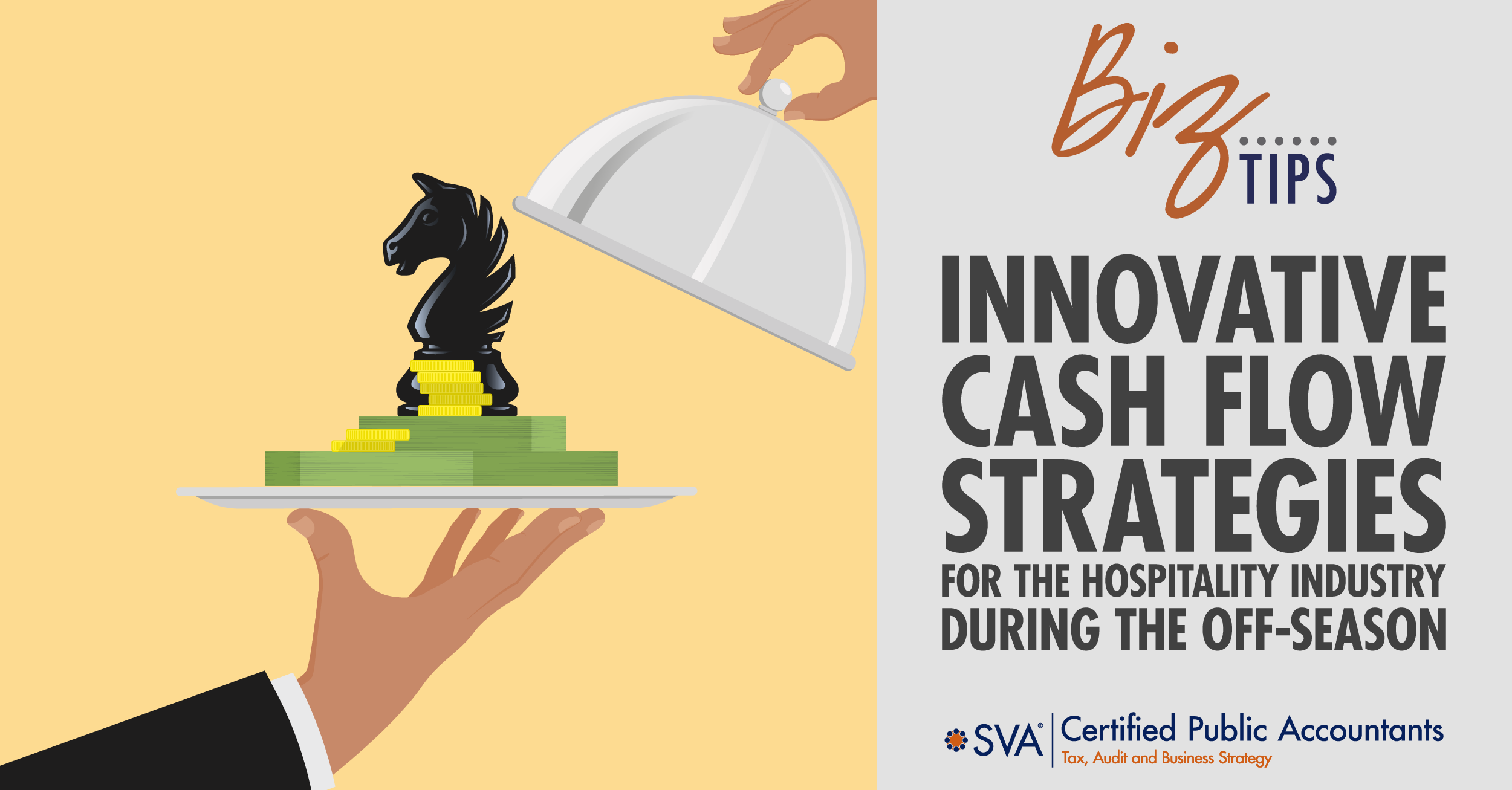| Highlights: |
- Outlines practical off-season cash flow strategies for hospitality businesses, like off-season packages, local events, and service diversification to sustain revenue.
- Recommends long-term planning techniques such as analyzing seasonal cash cycles, adjusting staffing, and making strategic investments for year-round financial stability.
- Aims to help hospitality owners smooth seasonal peaks and valleys with proactive promotions, cost management, and diversified revenue streams.
|
Managing cash flow during the off-season presents a unique challenge for hospitality businesses. However, with creative approaches and thoughtful planning, you can keep your business thriving year-round.
Hospitality Cash Flow Strategies for Non-Peak Season
Here are some strategies that can help stabilize your cash flow when demand dips.
Offer Off-Season Packages and Discounts
Attract more guests during slower months by offering off-season promotions. Consider creating:
| Special Promotions |
Tailor offers to appeal to locals or travelers who enjoy off-peak experiences. |
| Discounted Rates and Bundled Packages |
These can entice bookings by providing extra value, even when traffic is lighter. Consider partnering with with another local business as well. This allows you to offer an attractive package to guests while also benefitting both businesses. |
Host Local Events and Workshops
Your venue doesn't need to sit idle during the off-season. Explore using your space for events such as:
| Weddings and Corporate Retreats |
These types of gatherings can fill your property during quieter times. |
| Community Workshops |
Engage with local communities by offering workshops, bringing in both revenue and local visibility. |
Diversify Your Services
Expand your offerings to capture revenue streams beyond lodging or dining:
| Catering or Event Planning Services |
Provide your signature services to off-site locations. |
| Home Delivery of Signature Dishes |
Keep your brand front-of-mind by offering delivery or catering, maintaining engagement with customers even during the off-season. |
| Create a Revenue Generating Attraction |
An attraction or activity that is desirable to guests during your off-season is another way to generate additional revenue. |
Long-Term Cash Flow Management for Hospitality Businesses
While these strategies help address short-term cash flow challenges, sustainable cash management requires a deeper analysis of your business’s financial cycles. Here's how you can improve long-term stability:
Analyze Seasonal Cash Flows
Understanding your peak season cash generation versus off-season needs is critical. How much surplus from the high season can be used to cover off-season expenses? If these numbers don't align, a line of credit may help bridge the gap during the off-season months.
Attract Off-Season Guests
Consider whether your property could host events like sporting groups or school functions during slower months. If your property cannot currently host such events, consider partnering with a facility that hosts events but does not have accommodations.
Evaluate Staffing Needs
Determine if seasonal staffing could reduce payroll burdens. Can you operate with a leaner team during slower months? Identifying the optimal balance of year-round versus seasonal employees can help manage overhead costs.
Make Strategic Investments
Consider investing in facilities or services that will increase off-season appeal. For instance, adding an indoor activity center or a family entertainment space could allow you to attract guests even in inclement weather. This upfront investment could transform your off-season into a more profitable period.
(Download Video Transcript)
Diversify Your Portfolio
Growth strategies that complement your peak season could offer more consistent cash flow. Like balancing an investment portfolio, diversifying your revenue sources across different market segments with varying peak seasons can help your business thrive year-round.
Smooth Out the Peaks and Valleys During the Year
By incorporating these strategies, hospitality business owners can smooth out the peaks and valleys of seasonal demand, ensuring a more stable and profitable operation throughout the year.
© 2024 SVA Certified Public Accountants

